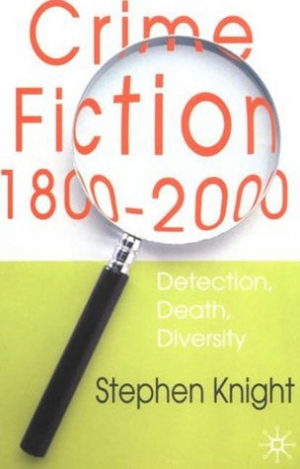Palgrave Macmillan
Rick Thompson reviews ‘Crime Fiction: 1800–2000: Detection, Death, Diversity’ by Stephen Knight and ‘The Cambridge Companion to Crime Fiction’ edited by Martin Priestman
‘It is escape not from life, but from literature.’
(Marjorie Nicolson on the detective genre,
‘The Professor and the Detective’, 1929)
I began reading crime fiction in the 1950s and became serious about it in the 1960s, searching out what scholarship there was then about its history and development, its types and practitioners. So I am probably an atypical reader (and reviewer) of these two books. I read them with the pleasure of familiarity and recognition, being reminded of things I hadn’t thought of in a long time. No little part of that pleasure lies in seeing how others assemble and weigh the components of this genre’s history.
... (read more)France in 1914 was in many ways almost completely different from how it was in 1789. In the 1780s France was an ‘agrarian pre-capitalist society’ in which the ‘location of most industry and the sources of power and most wealth were rural’. By the turn of the twentieth century, it was a capitalist society in which ‘an urban, bourgeois and republican culture had become as hegemonic as had been that of the Church and the aristocracy under the ancien régime’. The second edition of Melbourne academic Peter McPhee’s remarkable book, A Social History of France 1789–1914, explains why and how this occurred.
... (read more)Colin Mackerras reviews ‘The West and China since 1500’ by John S. Gregory
Jack Gregory has devoted much of his long career in China studies to teaching and studying the ways in which the West and China have interrelated. He is well qualified to write on the subject. Classes that Gregory has given in Melbourne to students attending University of the Third Age classes have inspired this book. In style and structure, it is highly suitable for teaching. The writing is clear, interesting and accessible. Though the book could have done with some pictures, it does have a map and the presentation is attractive.
... (read more)Eamon Evans reviews 'Sympathy: A philosophical analysis' by Craig Taylor
In 1958 Oxford philosopher Elizabeth Anscombe, whose demolition of C.S. Lewis in a Union debate a few years earlier was said to have driven that colleague to fiction, turned her sights on a bigger target: modern moral philosophy. The then-dominant notions of obligation and duty ‘ought to be jettisoned’, she declared, as they make no sense in the absence of a lawgiver, or at least of some external source of value, and these days their presence is no longer assumed. But ‘If there is no God,’ said Dostoyevsky’s Grand Inquisitor, ‘then anything is permitted.’ If reason, religion and utility can’t field our moral questions, what tells us to not lie and steal?
... (read more)



